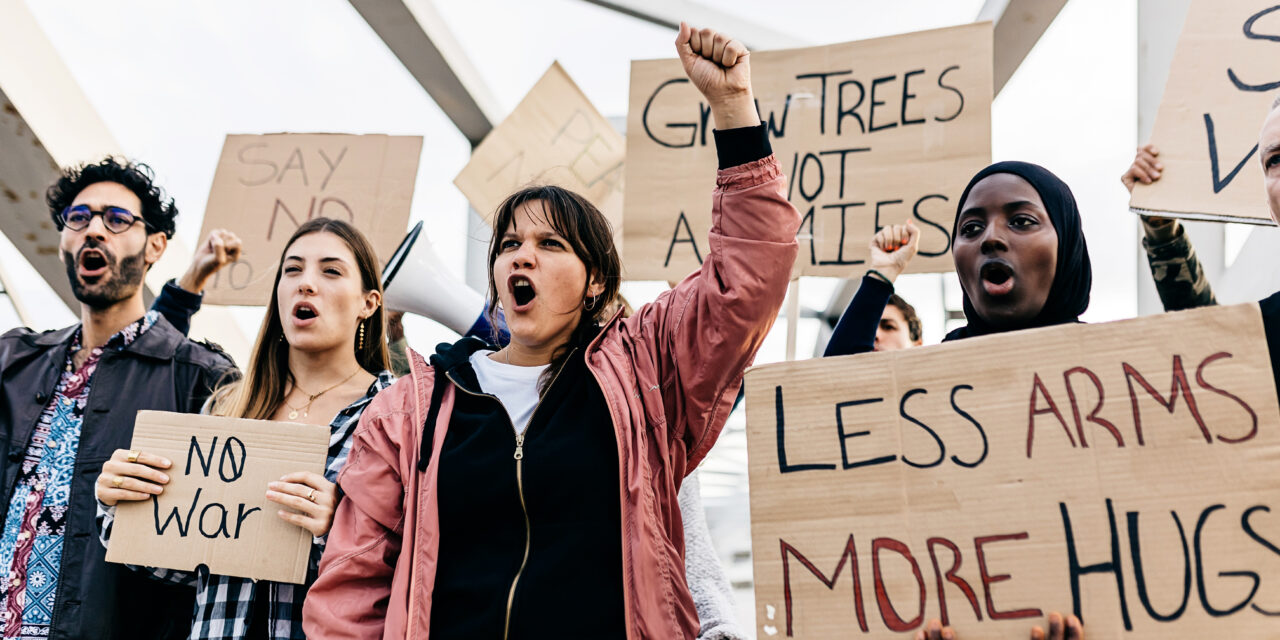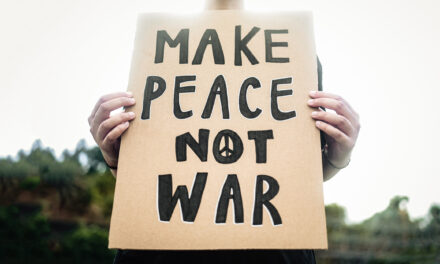Although the dire impact of the Israel-Hamas war has touched many countries in the region and beyond, no foreign country has been so profoundly affected by the war than Jordan. Israel must mitigate Jordan’s concerns to save its critical alliance with its neighbor while fully collaborating in the search for a permanent resolution to the Israeli-Palestinian conflict
Israel-Jordan Relations In The Wake Of The Gaza War
Under Prime Minister Netanyahu’s leadership, Israel-Jordan relations have hit a new low. Sadly, after 30 years of peace, there is deep sullenness and disappointment between the two countries. The aspiration for strategic partnership has fallen short, except for security collaboration. Jordan’s King Abdallah and Netanyahu do not see eye-to-eye on many issues. The King views Netanyahu as particularly responsible for the deterioration of the relationship between the two countries. Of specific concern to Jordan is the Israeli government’s brutal treatment of the Palestinians in the West Bank, its worries about any change in its status as the guardian of the holy Muslim shrines (Haram al-Sharif), and its concerns over the limits of the bilateral economic relations. What has added significant insult to the already injured relationship is the tragically inadvertent carnage and destruction being inflicted on the Palestinians in Gaza as a result of the Israel-Hamas war.
For Jordan, the future resolution to the Palestinian conflict is the most contentious because whatever happens to the Palestinians, especially in the West Bank, has a direct and indirect impact on Jordan’s security, economy, and demographics due to its proximity and also because half of the population is of Palestinian origin. Netanyahu made hardly any effort to address King Abdallah’s justifiable worries about the rapidly deteriorating security conditions in the West Bank. Since the Israel-Hamas war began on October 7th, nearly 220 Palestinians have been killed in the West Bank as of this writing, and there is no sign that the violence will abate any time soon.
Indeed, the absurdity here is that given that Jordan has been at peace with Israel since 1995, its proximity to Israel, and its mutual concerns over the region’s stability, the need for full cooperation on intelligence sharing, commercial ties, and national security become ever more critical. But then, Netanyahu has taken Jordan for granted when, in fact, Amman remained faithful to its collaborative efforts with Israel and continues to play a critical role in monitoring and securing the approximately 300-mile-long border with Israel to prevent the smuggling of weapons and infiltration of terrorists into Israel proper and the West Bank.
The Israel-Hamas war has enormously changed the political dynamic of the Jordanian-Israeli relationship. Although Jordan expressed sympathy toward the Israelis for the unimaginable butchery that Hamas inflicted on innocent Israeli civilians, Israel’s invasion of Gaza and the horrendous destruction and death have enraged the Jordanians to a level unseen between the two countries since they signed a peace treaty in 1994.
More than 50 percent of the Jordanian population are of Palestinian origin and have a strong affinity to their brethren wherever they reside. The death of more than 14,000 Palestinians in Gaza, including nearly 6,000 children and 4,000 women, caused an unparalleled stir in Jordan, damning Israel and demanding an immediate end to the hostilities. In fact, out of sympathy and solidarity, many Jordanian youth have chosen to adopt “Hamas ideology.”
The UN Jordanian delegation presented a resolution to the United Nations General Assembly (UNGA) calling for an “immediate, permanent, and sustainable humanitarian truce leading to a cessation of hostilities,” which was adopted by 120 countries. On November 1st, Jordan’s Foreign Minister Ayman Al-Safadi recalled Jordan’s Ambassador to Israel, saying that his decision was an “expression of Jordan’s rejection and condemnation of the raging war in Gaza, which is killing innocent people and causing an unprecedented human catastrophe.”
Jordan considers the forced evacuation and displacement of Palestinians in Gaza as equivalent to a war against civilians that will fundamentally shake the bilateral Israeli-Jordanian relations, mainly because Jordan has the largest Palestinian refugee population of any other country, which makes it extraordinarily sympathetic and sensitive to the Palestinian cause.
Of particular concern to the Jordanian government is that the Netanyahu government is determined to deny the Palestinians the right to statehood, which will have a significant impact on Jordan domestically. What worries the Hashemite Kingdom is that some ministers in the current Israeli government are resuscitating the notion that Jordan is Palestine by their actions in the West Bank. Although Netanyahu knows how sensitive the Jordanian government is about this momentous issue, he has done nothing to assuage the Jordanians’ growing anxieties that the West Bank Palestinians will be entirely pushed into Jordan.
Amman can play a significant regional diplomatic role in stemming the escalation of the conflict, especially in the West Bank, before it spins out of control. Jordan, the most stable country with moderate political leadership in a region reddened with violent conflicts, has and continues to serve along with Israel as the cornerstone of the US-Middle East security partnership, which both countries must guard with zeal.
There are several necessary measures that the Israeli government must take to alleviate and mend past and present Jordanian grievances and restore and further improve their bilateral relationship, which would best serve their national interests.
First, given Jordan’s direct and indirect involvement with the Palestinians, Israel must not ignore Jordan’s concerns over the violent clashes between the Israeli settlers and security forces and the Palestinians. Recently, the increasing violence in the West Bank compelled Jordan to strengthen its border security to prevent the escalation of violence from spilling over into its territory. Nevertheless, it could precipitate an influx of Palestinians into Jordan, which Amman wants to avoid. Israel must restate in an unmistakable tone that it respects Jordan’s sovereignty, and any resolution to the Israeli-Palestinian conflict will be separate and apart from and would not infringe in any way on Jordan’s independence, which Israel recognizes.
Second, Israel must commit to continuing water and gas supplies to Jordan without interruption. This is critical for restoring Jordan’s confidence in any Israeli government, which has been dangerously eroding under Netanyahu. The “Blue and Green Prosperity” project, financed by the UAE and signed in August 2023, enables the exchange of Israeli desalinated water for Jordanian solar energy. This is a significant project for Jordan and must be guarded and fully implemented under any circumstance.
Third, although the collaborative security ties and intelligence sharing between Jordan and Israel remain close, the Israeli government must ensure their security collaboration stays intact and robust. Israel must also carefully address Jordan’s unique security needs given the continuing regional tension and the threats of extremist militant groups, as well as its concerns over Iranian threats, which Israel shares. Amman needs to feel assured that Israel has Jordan’s back.
Fourth, Israel must assure Jordan that under no circumstances would it seek or facilitate any change in the custodianship and the administrative responsibility of Jordan over the Muslim holy shrines (Haram al-Sharif) in Jerusalem. From the Jordanian perspective, the current arrangement gives it a strategic basis that allows it to have a say in any future agreement with the Palestinians in connection with Jerusalem. Although Saudi Arabia aspires to assume that role, Israel should honor its agreement with the Hashemite Kingdom from the time Israel annexed East Jerusalem in 1967.
Fifth, Israel ought to strengthen its economic ties with Jordan by expanding the import-export of goods and services, encouraging Israelis to invest in Jordan, especially in the technological sector, and increasing tourism once the Israel-Hamas war comes to an end and the anti-Israeli Jordanian public sentiment subsides.
The current Netanyahu or any future Israeli government must stop short of nothing to safeguard its ties and constantly improve its relations with Jordan—Israel’s most important Arab ally, partner for peace, and its closest neighbor. Since they have a strong mutual national security interest and strategic alliance, Israel should work hand-in-hand with Jordan in the search for a resolution to the Israeli-Palestinian conflict because it will directly affect Jordan’s national interest on every front.
To be sure, given the Israel-Hamas war, which makes it impossible nor desirable to restore the status quo ante, it is now more urgent than any time before for Israel and Jordan to mitigate their differences, strengthen their strategic alliance, and find common ground on how to resolve the Israeli-Palestinian conflict.
—
For more information on how a sustainable peace agreement based on a two-state solution can be reached, please refer to my essay in World Affairs, “The Case for an Israeli-Palestinian-Jordanian Confederation: Why Now and How?”
____________
Dr. Alon Ben-Meir is a retired professor of international relations at the Center for Global Affairs at NYU. He teaches courses on international negotiation and
Middle Eastern studies.


















